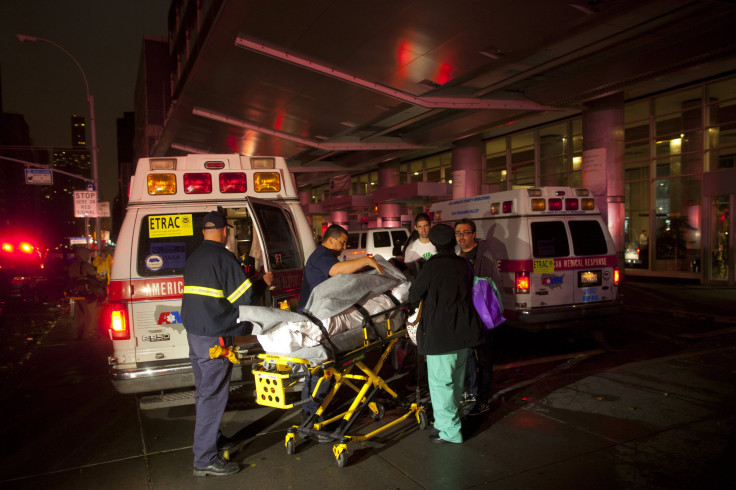One Third Of US Stroke Victims Didn't Call 911

The amount of time it takes a stroke victim to reach an emergency room can mean the difference between life and death. So why did a third of stroke victims in the United States neglect to call 911?
Stroke and other cardiovascular disorders remain one of the leading causes of death in the United States ending over 800,000 lives each year, according to the Centers for Disease Control and Prevention.
A stroke, or cerebrovascular accident (CVA), occurs when a blood clot obstructs blood flow or a blood vessel bursts in the brain. The lack of blood flow to the affected region can kill brain cells, which may lead to permanent damage to memory, speech and motor skills. In extreme cases, such as when a person waits too long to seek treatment, it could lead to death.
The timing for receiving treatment for a stroke is crucial. The best and possibly life-saving intervention, intravenous tissue plasminogen activator (tPA), can be administered only within 3 to 6 hours of the onset of symptoms, depending on the size of the obstructed vessel. The sooner the treatment, the better the odds of survival with less damage.
A research team from the UCLA Stroke Center at the University of California, Los Angeles Health System analyzed data from 204,591 stroke cases that took place at 1,563 hospitals enrolled in the American Heart Association Get With The Guidelines initiative.
After analyzing the records of over 200,000 stroke victims from 2003 to 2010 researchers found that 36.3 percent of those who had a stroke did not arrive at the hospital by an ambulance or other type of emergency medical services (EMS).
Their results also showed that minority groups and people living in economically deprived areas were even less likely to call EMS.
"EMS are able to give the hospital a heads up, and that grabs the attention of the emergency room staff to be ready to act as soon as the patient arrives," said Dr. Jeffrey L. Saver, senior author of the study and director of the UCLA Stroke Center in Los Angeles.
Not only did ambulance services contribute to the number of earlier arrivals to hospitals, but also the speed in which patients were evaluated and treated. So what reasons could someone have for not calling 911 during a stroke?
"The ambulance crew also knows which hospitals in the area have qualified stroke centers. Patients don't lose time going to one hospital only to be referred to another that can provide more advanced care if needed, whether that's drugs to bust up the clot or device procedures to remove it," Dr. Saver said.
Dr. Saver and his colleagues speculate that the majority of younger Americans are just too stubborn to alert emergency services because they don't perceive their situation as an emergency.
Others, they say, fear the cost of an ambulance ride and all the extra medical attention could be too much for their insurance to cover.
Lastly, the severity of a stroke could mean a loss of speech and movement,both of which could impede on person's ability to alert the authorities.
The research team advocated raising awareness among people who seem to be at a higher risk of not calling 911, especially younger people and minorities.
The entire study is published in the American Heart Association's journal Circulation: Cardiovascular Quality and Outcomes.



























